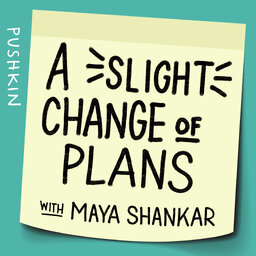Violence, Recovery and Modern Jewish Life with Mark Oppenheimer
Writer Mark Oppenheimer spent the last few years documenting the recovery of Pittsburg's Squirrel Hill neighborhood, a historic Jewish neighborhood and site of the 2018 Tree of Life Synagogue mass shooting. Oppenheimer discusses the history of Squirrel Hill, the lasting impacts of the attack, and what it means for American Jewish life today.
Learn more about your ad-choices at https://www.iheartpodcastnetwork.com
In 1 playlist(s)
Deep Background with Noah Feldman
Behind every news headline, there’s another, deeper story. It’s a story about power. In Deep Backgro…Social links
Follow podcast
Recent clips

Sneak Preview: The Other Side of Change by Maya Shankar
41:49

The Future of COVID-19 with Marc Lipsitch
37:05

How One Bank Shaped American Capitalism
32:06
 Deep Background with Noah Feldman
Deep Background with Noah Feldman